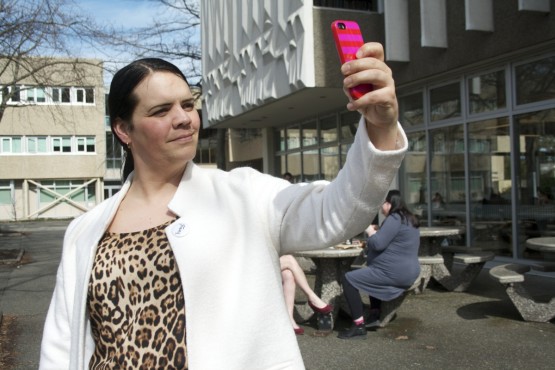A bill aiming to increase protections to transgender persons has been effectively gutted by an amendment proposed by Conservative Senator Don Plett. While two amendments are considered procedural, the third prevents the law from applying to places like public bathrooms, crisis centres, and change rooms. The amendment is considered so contrary to the bill’s original purpose that proponents are unlikely to support it should this version be subject to a vote.
Bill C-279 itself was originally proposed in 2011 by Esquimalt-Juan de Fuca MP Randall Garrison, seeking to add “gender identity” and “gender expression” to the Canadian Human Rights Act and the Criminal Code. “Gender expression” was subsequently removed from the bill, and “gender identity” was defined in order to maintain Conservative support.
According to Garrison, Senator Plett’s amendment is contrary to the intention of the bill, and is not likely to be voted in as law due to objections from the Opposition, the upcoming recess, and the upcoming federal election. Bill C-279 represents the fourth attempt since 2005 to amend the law to represent gender identity.
Maureen Bradley is an associate professor in the University of Victoria’s Department of Writing, and an award-winning film director. Bradley has most recently released Two 4 One, a romantic comedy feature film about a man four years into his female-to-male transition.
According to Bradley, Plett’s amendment was based on myths that don’t hold up. “It’s based on a complete lack of research on his part, and that’s shocking, to put forth an amendment that’s just based on fear, and fear mongering,” she said.
Politically, the amendment was a tactical move to have the bill killed, but opposes the original intention of the bill. “Bathrooms are a dangerous place for trans people,” Bradley said. Most bullying scenarios that occur at a grade-school level take place in a bathroom, and are a continued threat for transgender people.
“If we just decided that you could choose a bathroom or a change room of your own choice, this wouldn’t even be an issue,” she said. “It’s seeing the whole world through a very stripped and not very accurate gender binary that’s put us into this position and this problem.”
Currently, some protections for transgender people are offered at a provincial level under sex and gender, “but [the bill, with its original intent,] would advance the rights of gender-variant people to have protections that are specifically for them in both the Criminal Code and human rights legislation,” said Dr. Aaron Devor, director of the Transgender Archive at UVic, the world’s largest collection of historical materials from positive and negative transgender activism and research.
Devor referred to Plett’s bill as “an extremely hostile act,” undermining and reversing the bill’s original intent. Plett was able to make use of colleagues in the unelected Senate to pass the amendment, which he will be unable to do next time the bill awaits passage.
Plett put forth the amendment claiming it would protect his five-year-old granddaughter from the “dangers” of being exposed to transgender people in the bathroom. If the bill were to become law, with Plett’s amendment included, it may expose transgender people to dangerous situations.
“The public increasingly understands that there really is no danger to his five-year-old granddaughter, or anybody else, from transgender people using the bathroom that’s appropriate to their gender identity,” Devor said. “In fact, there is danger to transgender people if they are required to use or expected to use a facility that corresponds to gender they are not expressing.”
A social media backlash began shortly after Plett’s amendment, including transgender people taking selfies in the bathrooms of their assigned gender at birth.
“We’re seeing the power of social media, but we’re also seeing, if you’re comparing it to 20 years ago, a change in the public’s understanding of where the dangers are,” he said.
In a tweet to the Martlet, trans activist Daphne Shaed stressed that “the issues go way beyond bathrooms.” Shaed is also the editor of Thirdspace zine, in conjunction with the UVSS Women’s Centre.
In a YouTube video on the topic, Shaed said her involvement in the trans movement was not to secure a bathroom stall. “Is the bathroom the central issue of trans rights? No.”
Rather, Shaed seeks to address issues that do not necessarily happen in the bathroom. These include protections against harm, hate crimes, discrimination, unemployment, and suicide, as well as improved access to education, healthcare, identity documents,shelters, and sexual assault centres.
“I’m beginning to think the Conservatives have a bathroom fetish,” she said. “Bathrooms aren’t perfect, but let’s stop it from distracting us from the real issues here.”







